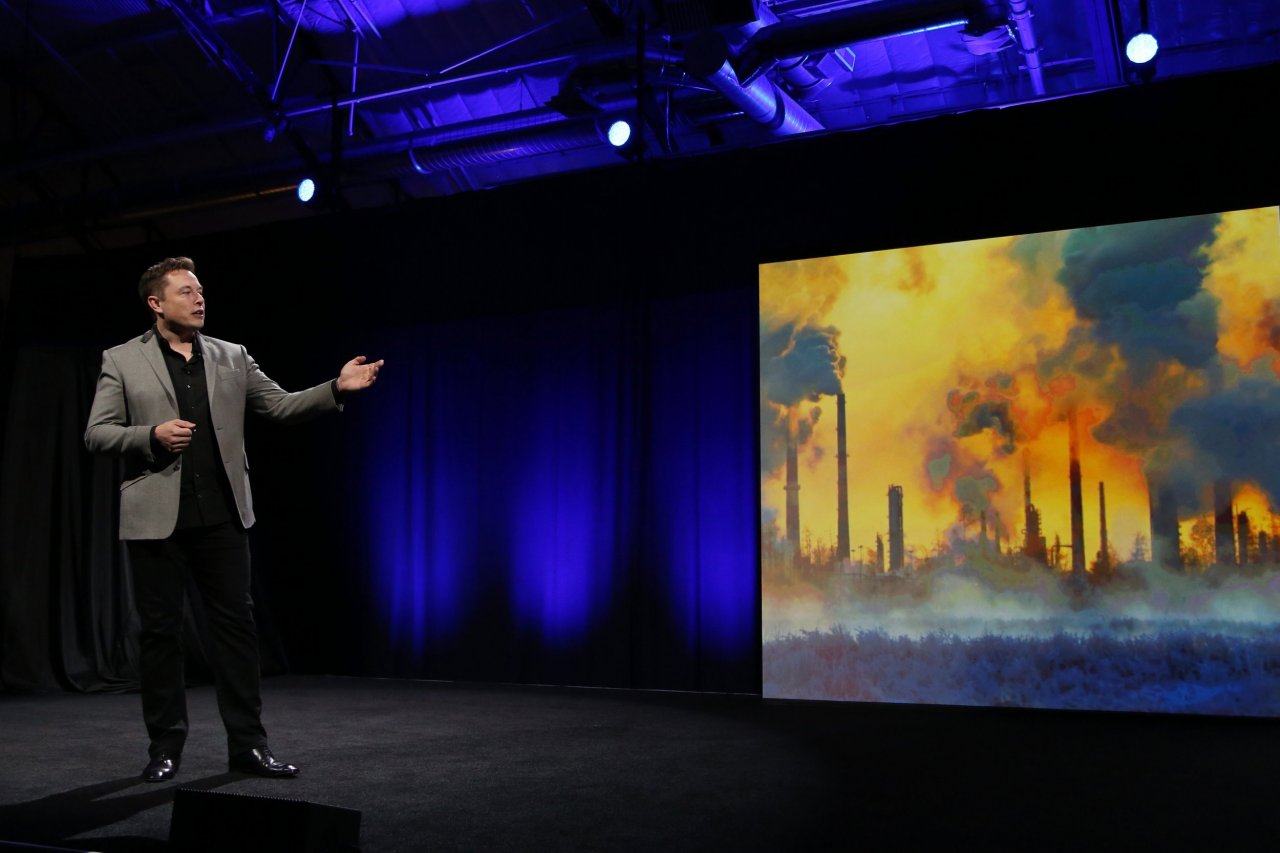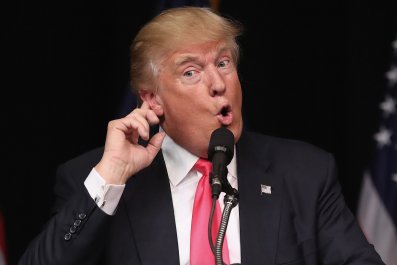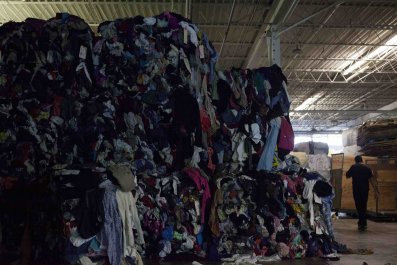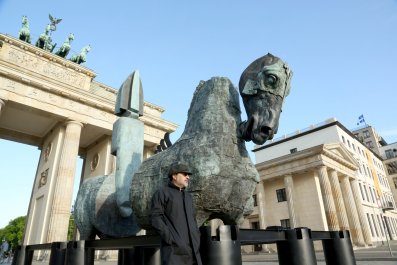This has been the planet's hottest summer in recorded history, so it's nice to know Elon Musk has commenced his grand scheme to transform the energy business so profoundly that there's a chance Iceland won't become the new Jamaica after all.
One small step in Musk's plan involves merging Tesla, his electric car company, with SolarCity, his cousin's solar panel maker. That deal—announced in August—has been getting all sorts of blowback from short-term-thinking Wall Street nincompoops, who groan that both companies are losing money and the merger won't help. Such doubts about Musk are like asking the Wright brothers in 1899 why they were fiddling with bicycle parts.
Future of Energy
There's so much more at stake than just a company or stock price. The future of energy is coming into view, driven by Musk and a growing number of investors and entrepreneurs. In a decade or two, most homes and buildings will have cheap and superefficient solar panels on their roofs and high-powered batteries in their basements or garages. The batteries will store power generated when the sun shines for use when it doesn't. Each of these buildings will be connected to a two-way power line that can allow anyone to sell excess energy or buy needed energy in an eBay-style marketplace.
Most cars will be electric, and fewer people will need to own one, since an electric, connected, self-driving car will be able to work for Uber when the owner isn't using it, which is 90 percent of the time. That way, on-demand transportation is available just about everywhere. Your home solar panels and batteries will charge your electric car, so your home will supply most of the clean power you and your family need. You might not have to buy any electricity from some far-off coal-burning electric plant or ever again fill up at a gas station.
Electric utilities will become a shrinking provider of last resort, like the U.S. Postal Service or telephone company landlines. Some people will drive gas-powered cars, but doing so will become about as unwelcome as riding a turd-dropping horse down New York City's Fifth Avenue. Gas cars will also get less convenient as gas stations one by one go out of business or convert to charging stations for electric cars.
Oil will still be needed for things like plastics and jet fuel, although advances in virtual reality might make business travel almost unnecessary, severely cutting demand for airlines. As demand for oil drops and prices plunge further, drilling new wells will become bad business. Before long, the amount of carbon we're chugging into the air should drop dramatically.
Seem far-fetched? All the relevant trends point to such an outcome, probably sooner than you think.
The technology of rooftop solar is on a trajectory similar to Moore's Law, which described how computers would get twice as powerful for the same price every 18 months for decades. The cost of solar has dropped 95 percent since the 1980s, while efficiency has rocketed. With today's technology, solar panels covering just 0.6 percent of U.S. land mass could supply all the electricity needed for the entire country.
Meanwhile, when Tesla unveiled its first sports car eight years ago, a mass-market, all-electric car seemed more unattainable than a comfortable stiletto heel. But when Tesla took preorders for its Model 3 sedan in March, it signed up half a million buyers within weeks. Now General Motors CEO Mary Barra, followed by just about every other major carmaker, is also betting on an electric fleet.
Viable home batteries will be supremely important to make all of this take off. Musk is about to open Tesla's $5 billion Gigafactory in Nevada, and for the first time giant batteries for cars and homes will be manufactured on a huge scale. Tesla has said that should drive down the cost of battery power by at least 70 percent.
And this is where Musk and his "Master Plan, Part Deux" kicks in. He wrote about it in July, noting that the end goal of Tesla was never to produce hot electric cars (even though Tesla just unveiled the fastest-accelerating car on Earth). Tesla built hot electric cars as an entry point for ending dependence on oil. "The point of all this was, and remains, accelerating the advent of sustainable energy, so that we can imagine far into the future, and life is still good," Musk said.
Tesla cars will be a part of a sustainable electric system: the solar panels, the batteries, the software to manage power and trade it over networks. "One ordering experience, one installation, one service contract, one phone app," Musk predicted.
One other factor will be turning one-way power grids into two-way exchanges. Startups such as Gridco Systems and Varentec are building that technology. As more people install solar and demand for traditional power-plant-generated electricity shrinks, it's a good bet utilities will adopt these "intelligent power grids," much the way cable TV companies overbuilt one-way broadcast lines with two-way broadband systems as the internet exploded in the 1990s.
Musk Leads the Way
Such a complete system is why Musk thinks the SolarCity deal makes sense, even if others rail against it. Founded in 2006, SolarCity is the biggest solar panel company in the U.S. It was growing like crazy for years, and by 2015 it was adding 12,000 customers a month and was worth $6 billion. Now SolarCity is in a hole, losing maybe $200 million last quarter, according to Bloomberg. But that deficit has little to do with solar technology and everything to do with policy decisions among regulators. For instance, earlier this year, regulators in Nevada protected the state's utility companies by instituting rules that made solar a bad deal for homeowners. The market dried up, SolarCity pulled out of the state and laid off 550 employees, and its earnings suffered.
Musk learned something important from Tesla: He doesn't have to change everything himself—he just needs to show the way. He didn't need to "disrupt" the automakers. He only needed to co-opt them, get them to see electric cars as an industry-rejuvenating product and make them want to whip Tesla's ass before Tesla blew past them. The result: The whole auto industry is reinventing itself.
Can't you see—especially you Wall Streeters—that he's doing the same now with energy? It's great that politicians sign treaties about climate change, but the energy revolution will happen because of entrepreneurs and technology. At the moment, Musk is the one guy with the chutzpah to show us the way. It's the most important thing he's ever done.
Let's hope it works. Listening to reggae in Reykjavik just doesn't seem right.





















